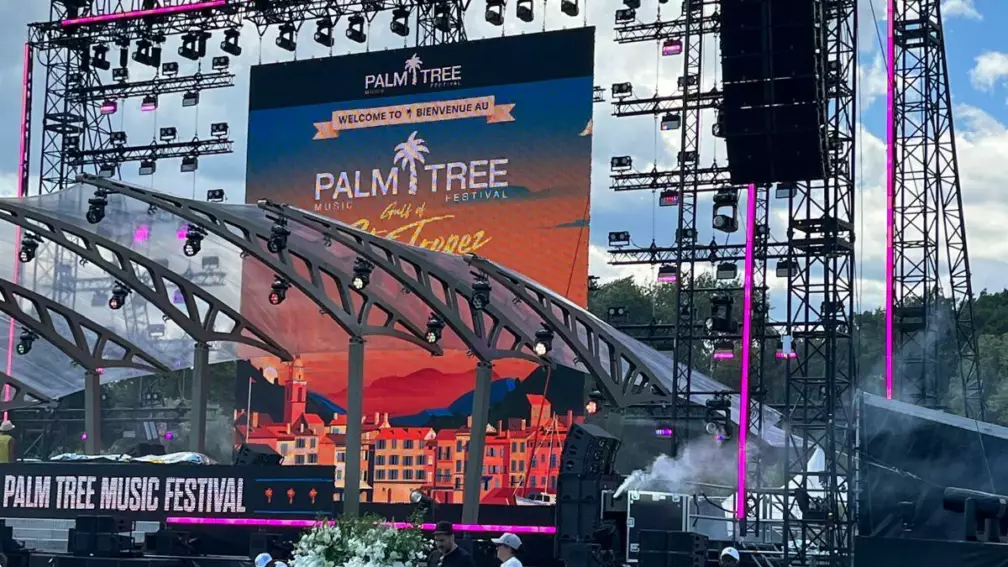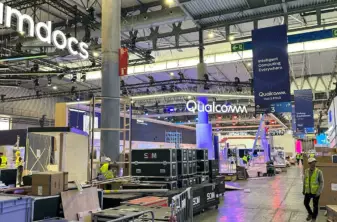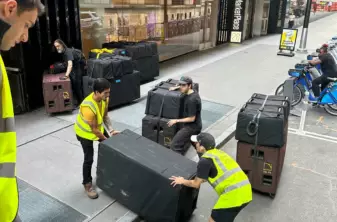What is Audio Visual Equipment?

Audio visual equipment, or AV, plays a vital role in the events industry. It enhances sound, visuals, and atmosphere, helping to deliver impactful and professional experiences. In this blog, we’ll explore what AV equipment is, why it matters, the different types used for various events, and the essential role of event crew in making it all work.
What is it?
Our definition of AV is as follows, ‘technology that supports sound, visuals and lighting to create, facilitate and engage at any event’. The core components include:
Sound systems: microphones, speakers, mixers
Visuals/screens: projectors, LED walls, monitors
Lighting: stage lights, uplighters, moving heads
Supporting tech: control desks, cabling, software
AV equipment is selected based on the event size, venue, and purpose. It’s not one size fits all, and requires a customised solution delivered by event professionals.
Why AV Equipment Matters
AV equipment can:
Ensure clear communication between presenters and audiences.
Build atmosphere with creative lighting and visuals.
Deliver impact, helping events feel engaging and memorable.
Contribute to a smooth, professional experience for both organisers and attendees.
Different Types of AV Equipment for Different Events
Every event is different and has different requirements. Here are some examples of the types of AV that may be needed for different events:
Corporate events & conferences: microphones, PA systems, projectors, digital screens, basic lighting.
Concerts & festivals: large sound systems, mixing desks, lighting rigs, LED screens.
Weddings & private events: mood lighting, small PA systems, projectors for slideshows.
Hybrid & virtual events: cameras, streaming software, green screens, audio capture equipment.
Requirements vary depending on audience, venue and scale.
The Role of Event Crew
In order to reap the benefits of powerful AV equipment - they need to be managed by an effective team. Our technical crew are responsible for a variety of work from start to finish when it comes to this equipment. It starts with installation, where they are responsible for setting up the AV equipment safely and efficiently. Then they manage all operations, from sound, lighting and visuals during and throughout the event. If any issues arise, they are responsible for troubleshooting, resolving any technical issues on the spot. Specialist skills are also required for advanced equipment like lighting desks and rigging.
While the AV equipment itself is important, it’s the crew at the heart of the event, who make it work seamlessly.
Audio visual equipment plays a key role in enhancing many events. Different event settings require different equipment set ups, and skilled crew are essential in order to manage installation, operation, troubleshooting and takedown. Event organisers should prioritise the right AV set up, and the right crew.


